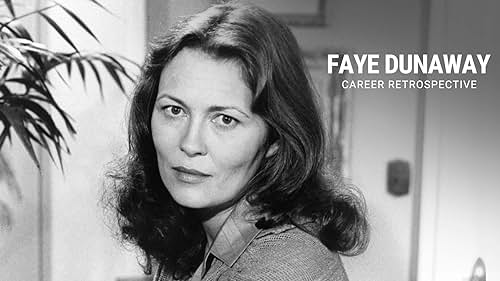Introduction:
In the realm of cinema, certain actors and actresses transcend mere performance to become icons of an era, epitomizing the spirit and style of their time. Faye Dunaway is one such actress whose name is synonymous with the golden age of Hollywood, particularly the tumultuous and groundbreaking period known as New Hollywood. With her striking beauty, undeniable talent, and enigmatic presence, Dunaway captivated audiences and critics alike, leaving an indelible mark on the landscape of cinema. In this extensive exploration, we delve into the life, career, and lasting legacy of Faye Dunaway, the femme fatale of New Hollywood.
Early Life and Beginnings:
Faye Dunaway was born on January 14, 1941, in Bascom, Florida, to Grace April and John MacDowell Dunaway Jr. Raised in rural Florida and later in small towns in Washington, Dunaway’s upbringing was marked by a sense of restlessness and ambition that would come to define her future career. After attending the University of Florida on a scholarship, Dunaway transferred to Boston University’s School of Fine Arts, where she honed her craft and discovered her passion for acting.
Dunaway’s journey to stardom began on the stages of New York City, where she made her Broadway debut in the short-lived play “A Man for All Seasons” in 1961. Her breakthrough came two years later when she was cast as the lead in the Broadway production of “Hogan’s Goat,” earning rave reviews and catching the eye of Hollywood producers. It wasn’t long before Dunaway made the transition to film, making her big-screen debut in the crime drama “The Happening” (1967), followed by a string of roles that showcased her talent and versatility.
Rise to Prominence:
It was in the late 1960s and early 1970s that Faye Dunaway emerged as one of the most prominent and influential actresses of her generation, earning critical acclaim and widespread recognition for her captivating performances. In 1967, Dunaway starred opposite Warren Beatty in Arthur Penn’s groundbreaking crime biopic “Bonnie and Clyde,” a film that would forever alter the landscape of American cinema. As Bonnie Parker, Dunaway delivered a tour de force performance that earned her an Academy Award nomination for Best Actress, solidifying her status as a rising star.
Buoyed by the success of “Bonnie and Clyde,” Dunaway continued to dazzle audiences with a series of iconic roles that showcased her range and depth as an actress. In 1968, she starred opposite Steve McQueen in Norman Jewison’s crime thriller “The Thomas Crown Affair,” solidifying her status as a style icon with her chic wardrobe and sophisticated allure. The following year, Dunaway delivered another memorable performance in Sydney Pollack’s romantic drama “They Shoot Horses, Don’t They?,” earning her a second Academy Award nomination for Best Actress.
Dunaway’s career reached new heights in the early 1970s with a string of acclaimed performances that further established her as one of Hollywood’s leading actresses. In 1974, she starred opposite Jack Nicholson in Roman Polanski’s neo-noir masterpiece “Chinatown,” delivering a mesmerizing performance as the enigmatic femme fatale Evelyn Mulwray. The film was a critical and commercial success, earning Dunaway her third Academy Award nomination for Best Actress and cementing her status as an icon of New Hollywood.
Legacy and Impact:
Faye Dunaway’s impact on the world of cinema extends far beyond her iconic performances and accolades. With her striking beauty, magnetic presence, and fearless approach to her craft, Dunaway shattered stereotypes and challenged conventions, paving the way for future generations of actresses to break free from traditional gender roles and expectations. Her portrayal of complex, multidimensional characters defied easy categorization, transcending genre and resonating with audiences around the world.
Dunaway’s influence can be seen in the work of countless actresses who followed in her footsteps, from Meryl Streep and Jessica Lange to Angelina Jolie and Charlize Theron. Her fearless approach to tackling challenging and unconventional roles inspired a new wave of feminist cinema, paving the way for greater representation and diversity on screen. Beyond her contributions to film, Dunaway’s legacy lives on in the countless lives she touched and the indelible mark she left on the landscape of cinema.
In Conclusion:
Faye Dunaway remains an enduring icon of New Hollywood, her name synonymous with the glamour, sophistication, and intrigue of the silver screen. With her unforgettable performances, groundbreaking roles, and timeless beauty, Dunaway captivated audiences and critics alike, leaving an indelible mark on the world of cinema. As we celebrate her legacy and contributions to the art of filmmaking, we are reminded of the power of cinema to inspire, provoke, and transcend the boundaries of time and space. Faye Dunaway may have left the stage, but her spirit lives on in the hearts and minds of cinephiles everywhere, a testament to the enduring power of her talent and charisma.
